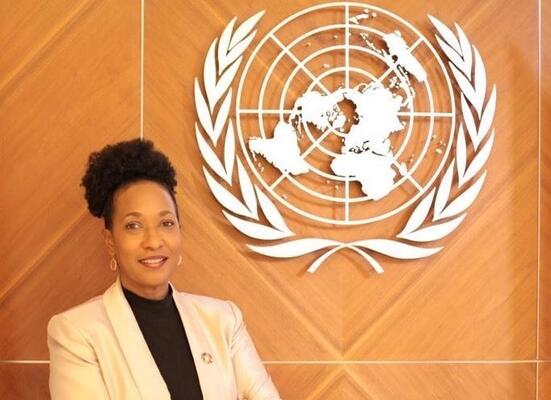
High-Level Remarks on “The Business Case for a Resilient Rebuild” preceding the closing session of “United Business Live” (en)
Good afternoon, ladies and gentlemen. I am very pleased that one of my first events as incoming Executive Director of the International Trade Centre is to engage with you at the SDG Business Forum. I am grateful to our hosts UN Global Compact, International Chamber of Commerce, and the UN Department of Economic and Social Affairs. I also extend congratulations to UN Global Compact on their 20-year anniversary and I look forward to working closer with Executive Director Sanda Ojiambo and her team.
We are at a crucial point in time, with 10 years left to implement the Global Goals and much of the world still in the midst of the COVID-19 pandemic. As the head of the United Nations development agency dedicated to supporting the competitiveness of micro, small and medium -sized enterprises (MSMEs), I am convinced that a resilient rebuild needs bold and practical partnership focused on placing small companies at the centre of the recovery.
In the face of today's global health crisis, the socio-economic fallout has been severe and we are still counting the costs. Among business, MSMEs have been most vulnerable to the global lockdown.
ITC's recent survey of 6,000 small businesses found that over 50% of micro and small firms are at risk of permanent closure, six months into the pandemic slowdown. Smaller firms also make up a larger proportion of companies in sectors that have been hardest hit such as tourism, services and manufacturing.
The pandemic has exposed a fragile economic context that rests on deep fault lines of inequality. In many places, essential workers are undervalued and overworked, forced to make tough choices between their safety and their livelihoods. Even before COVID-19, we were grappling with forces that were fundamentally shifting the context in which we do business, such as climate change and rapidly changing digital technology.
Today more than ever, we need bold and innovative leadership to not only recover from the current crisis, but to reimagine and refashion our global economy to be more just, sustainable, inclusive, and resilient.
What does such an economy look like? I can think of a few illustrations. An international trading system that allows medical supplies to reach those who need it most. Equitable business practices that reward equal pay for equal work. International value chains that minimize environmental degradation and respect workers' rights. And, at its core, strong, innovative and resilient MSMEs.
Why focus on MSMEs? These small firms are the backbone of the economy, making up over 90% of all companies, and 60-70% of employment. They tend to employ people from the most vulnerable segments of society, including women, youth, migrants and refugees, and are often led by them. For these populations MSMEs do more than just provide income; they allow the people in the most vulnerable circumstances to be their own agents of change and move toward creating economic self-reliance and resilience. Indeed undertaking recovery efforts with and for MSMEs is not only critical to its success, but also critical to achieving Agenda 2030.
ITC has almost 60 years of experience providing direct technical support to MSMEs to strengthen their competitiveness and facilitate their access to trade. Large global firms are vital partners to help MSMEs in three main ways:
1. by sharing their expertise and know-how,
2. Leveraging their networks and influence, and
3. Providing access to markets.
Allow me to share some examples.
ITC's SheTrades initiative offers rich examples, where large multinational companies purposefully integrate women-led businesses into their value chains, help them meet quality standards and share specific know-how to help them do business better.
As we endeavour to build back better, the private sector is uniquely able to contribute innovative ideas and solutions, and to debunk the perception that there are necessarily trade-offs between different SDGs. If we work together to find systems-based solutions, we can and will deliver across multiple goals.
Thank you.



